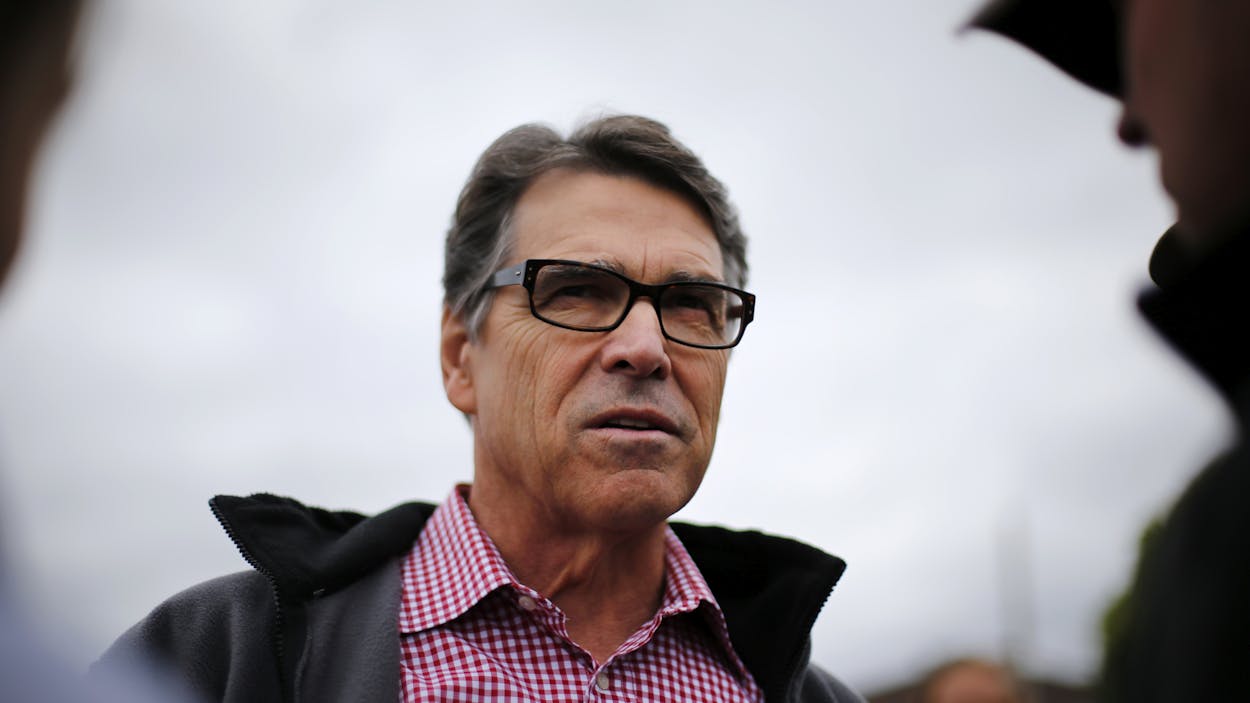Yesterday afternoon Rick Perry, the former governor of Texas, announced that he was suspending his campaign for his party’s presidential nomination. “When I gave my life to Christ, I said, ‘your ways are greater than my ways. Your will superior to mine,’” Perry told an Eagle Forum gathering in St. Louis. “Today I submit that His will remains a mystery, but some things have become clear.” He is the first candidate to withdraw from the crowded Republican primary field. The nail in the coffin came on Thursday, when CNN announced that it would invite 11 of the 17 candidates to debate in prime time this week—the ten who appeared on the main stage during Fox News’ debate, in August, plus Carly Fiorina. Perry’s camp had considered the debate his last chance to catch some attention, to raise enough money to keep scraping along.
According to the conventional wisdom, however, even that faint hope was unrealistic. Most people have seen Perry’s effort as doomed for a while, if not from the very beginning. His erratic 2012 campaign left national observers severely skeptical of his political abilities, if not his basic competence. The fact that he remained under indictment, as a result of how he handled his decision to veto state funding for the troubled Public Integrity Unit in 2013, had a chilling effect on fundraising. Donald Trump’s decision to heave himself into the crowded Republican field made Perry’s fight to earn a second hearing far more difficult. Trump’s status as frontrunner, meanwhile, suggests that even if Perry had reached the main stage, it may well have been futile. Whatever Trump represents to American conservatives—catharsis, anger, grievance—Perry wasn’t buying it, selling it, or condoning it.
That last point explains why I feel no regrets about having written, last month, that if I had to bet on the eventual nominee, I would put my money on Perry. I knew at the time that it was a contrarian view; some likely thought it a willfully unrealistic assessment of Perry’s political prospects, and it probably was. At the same time, as I wrote then, the governor was campaigning with integrity, and highlighting the Texas record, which we all share in, and which deserved a hearing. Meanwhile, Trump was already the frontrunner, and the conventional wisdom posited that his popularity was a fluke, an accident, or a fad. I disagreed, and my diagnosis of the severity of the Trump problem is proving grimly prescient: that’s because a lot of Americans have lost confidence in themselves and the country. I would rather lose money on a bet, or get clowned for bad punditry, or simply be wrong, than feel that way.







